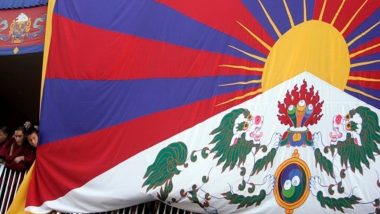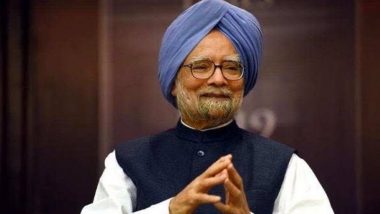Taipei, March 8: Hundreds of people, including dozens of Tibetans, came out on the streets of Taipei on Sunday demanding stronger public advocacy against decades of Chinese atrocities in Tibet, as they marked the 62nd anniversary of an uprising against the Chinese rule.
During the protest, one of the demonstrators urged people around the world to speak out against Chinese oppression in Tibet on March 10, the Tibet National Uprising Day, Focus Taiwan reported.
The Tibetan Uprising Day, observed annually, commemorates the 1959 Tibetan peaceful uprising against Communist China's repression in the Tibetan capital of Lhasa. The Tibetan rebellion triggered a Chinese military crackdown in Tibet and forced the Dalai Lama and hundreds of thousands of other Tibetans into exile, according to the group.
"Does anyone need permission to go home? We Tibetans have been trying for 62 years to go home," said Tashi Tsering, president of the Human Rights Network for Tibet and Taiwan (HRNTT).
The protesters began their march from Zhongxiao Fuxing MRT Station to Xinyi Plaza near the Taipei 101 skyscraper. The demonstrators chanted slogans such as: "Free Tibet, China out," "Tibet belongs to Tibetans," "Long live Dalai Lama!"
The participants of the rally included Taiwanese politicians across party lines such as Legislator Hung Sun-han of the ruling Democratic Progressive Party (DPP) and Taipei City Councilor Miao Po-ya of the Social Democratic Party.
According to Focus Taiwan, the organizers of Sunday's event said another gathering has been planned for March 10, at Freedom Square in Taipei, to commemorate the 62nd anniversary of the Tibetan uprising.
The organisers further said that similar rallies have been held in Taiwan for the past 17 years in memory of March 10, 1959, Tibetan rebellion against Chinese rule. Tibet was a sovereign state before China's invasion in 1950 when the People's Liberation Army (PLA) entered northern Tibet.
In 1951, a 17 Point Agreement was forced upon the Tibetans by the Chinese Government. By 1958, it was clear that they had no intention of securing the preservation of Tibetan autonomy and institutions.
Many Tibetans attempted escaping the communist persecution by going to India, but only a small percentage actually survived the difficult conditions of the journey, reported The Taiwan Times.
It further reported that the uprising in Lhasa was triggered by fear of a plot to kidnap His Holiness, the 14th Dalai Lama. Chinese military officers invited 14th Dalai Lama to visit the People's Liberation Army (PLA) headquarters for a theatrical performance and official tea and he was told to come alone that no Tibetan military bodyguards or personnel would be allowed past the edges of the military camp.
On March 10, fearing for the 14th Dalai Lama's life, 300,000 loyal Tibetans surrounded Norbulinka Palace, the summer palace of the Dalai Lama in Lhasa, preventing the Dalai Lama from accepting the PLA's invitation. After the crowds refused orders to leave the compound, the PLA launched an attack, killing thousands of innocent civilians who were only protecting their leader.
The Tibetans were hopelessly outnumbered and only seven days later, fearing for the lives of his people, the 14th Dalai Lama escaped to India and took refuge along with around 80,000 other Tibetans.
By March 17, Chinese artillery was aimed at the palace and in the resulting melee ended up killing 87,000 Tibetans with many more arrested or deported to labour camps, reported The Taiwan Times.
That day changed the history of Tibet and is marked as the most brutal and barbaric day on part of China, leading to the death and imprisonment of hundreds of thousands of Tibetans. March 10 is also regarded as 'Tibetan Martyrs' Day', dedicated to the patriotism of the heroic men and women of Tibet.
(This is an unedited and auto-generated story from Syndicated News feed, LatestLY Staff may not have modified or edited the content body)













 Quickly
Quickly





















